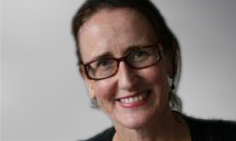A MEDICAL student told me recently he was thinking of adopting a pseudonym on Facebook.
Not that he posts anything particularly compromising on the social media network, but he was worried some of the pictures he was tagged in by fellow med students might damage his future employment prospects as a doctor.
It’s true that pictures of toga parties don’t really enhance anyone’s reputation, but should doctors feel obliged to hide their online activities behind a fake name in the way many celebrities do?
Medical guidelines have tended to take a defensive approach to the social media phenomenon, emphasising risks while paying little attention to potential benefits such as the possibilities for better engaging patients in managing their own health.
The risks certainly exist. Doctors have faced serious consequences for violating patient privacy or making disparaging comments about patients or colleagues online.
The AMA’s 2010 Australian guidelines and more recent American ones both suggest doctors’ best option might be to keep their professional and personal identities separate online.
But is that really the best solution — or even an achievable one — in our increasingly digitised age?
Three doctors from Johns Hopkins University in the US argue in a recent issue of the JAMA that such separation “verges on nonsensical”, given the way all of our personal and professional identities are entwined.
In fact, they liken the physician’s participation in the online world to the way a small-town doctor might interact with his or her community, inhabiting multiple identities simultaneously, as clinician, friend, neighbour and so on.
Cyberspace may be bigger than a village, but it makes sense the same principles might apply.
Rather than trying to separate the personal from the professional online, these authors suggest doctors instead consider whether potential social media content is suitable for a public space.
Physician, ethicist and author Dr Barron Lerner covers similar ground in a recent article for JAMA Internal Medicine, arguing these are not new issues.
Debate about appropriate behaviour for doctors, and about boundaries between doctors’ public and private lives, date back centuries, perhaps as far as Hippocrates, he writes.
In fact, he questions whether we should even worry about the appearance of drunken escapades on Facebook.
“Just how bad is it for patients to learn that young physicians get drunk on vacation, wear revealing swimsuits, and make snarky comments on one another’s Facebook walls?” he asks.
Perhaps more seriously, he questions whether the emphasis on the perils of social media might have an unintended consequence in condoning unprofessional activities when they occur outside the online arena.
“Deriding specific patients on rounds is surely as bad or worse than satirizing generic patients in internet videos”, he writes.
For many of us, social media are now an integral part of how we live our lives and, like any other form of communication, they bring both benefits and risks.
No matter how much you fiddle with your privacy settings, it’s hard to control where material posted online ends up, which means the safest option for any of us is to treat the internet as a public space, a kind of village square on steroids.
The bottom line is: if you wouldn’t want something to appear on free-to-air television, you should keep it off Facebook.
Jane McCredie is a Sydney-based science and medicine writer.

 more_vert
more_vert
In my view, some rules are universal and some are contextual. The universal ones include some things already mentioned – don’t use any language, post any pictures or have accessible links to any pictures that you would not be happy to see circulated publicly. Professional blogs or business sites should be as professional as your workplace. ALthough the language style can be informal or conversational, it needs to be within ”code of conduct” limits, and any information or advice must be accurate and perhaps referenced. Private FB sites, blogs and comments can be operated as a private citizen in a slightly different style, but still following the universal rules. IN general, professionals should keep their FB private (closed to people outside their group of FB friends), and preferably only accept real friends as ”friends” – to limit wider exposure. COmments about current events on blogs and newspaper sites can be made as a private individual and can express your personal point of view, but, if idenitifiable as you, should still adhere to the universal principle – if you don’t want everyone to know you said it, don’t post it.
I have been on social media for four years and follow the basic rule that whatever you are doing is in the public domain. You dont say or do anything you would not do on the main street.
the rules are simple, don’t say anything on the phone, in a letter, email, print or in front of a camera or on facebook, twitter, youtube, google plus, linkedin etc that you wouldn’t say publicly to someone’s face. If you must use a medium be polite. funny is ok but not offensive, smutty etc.
Ming the Merciless always has (aka @MGliksmanMDPhD), on the premise that if you’re not prepared to stand by your comments, it’s best you don’t make them.
The problem with “should” (doctors reveal their true identity on social media), of course, is that the term is a bit ambiguous. My opinion is that doctors who engage in the public sphere (social media or otherwise) AS a doctor, do have an ethical and professional duty to the public to identify who they are. I would not support, however, that they be compelled to do so, or that this be regulated.